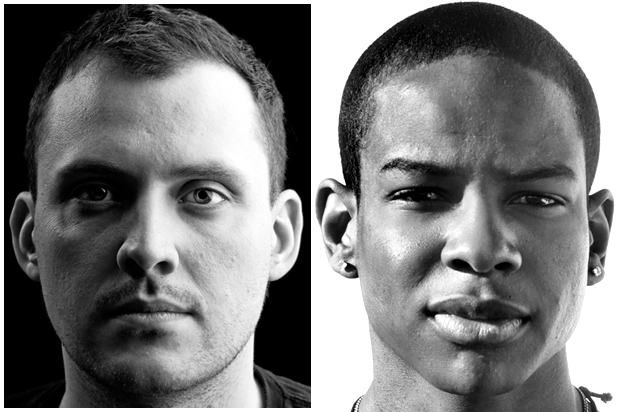
The allure of travel often masks the stark realities of inequality embedded within the hotel industry. From the opulent luxury of five-star suites to the basic comfort of budget-friendly accommodations, the experiences within these spaces often mirror the broader social and economic divides of our world.
Imagine stepping into a lavish hotel suite, the plush carpeting underfoot, the panoramic view stretching before you. This experience, for many, is a symbol of privilege and luxury. Yet, lurking beneath the surface is a stark contrast—the experience of those staying in more basic accommodations.
The disparities in comfort and amenities aren’t merely aesthetic; they often reflect deeper systemic issues. Access to high-end hotels and services is often tied to socioeconomic status, effectively creating a two-tiered system of travel experiences. This is the guilt of privilege—the uncomfortable awareness of inequality woven into the fabric of the hospitality industry.
Guests with privilege often enjoy seamless experiences, from check-in to concierge service and room service. However, guests from less privileged backgrounds may face challenges ranging from limited accessibility options to the simple lack of understanding from staff.
This isn’t solely about the physical differences in accommodation; it’s about the underlying experience. Consider the difference between a visually appealing and carefully designed room versus a functional but arguably less luxurious option. The emotional impact of these differences cannot be overlooked. The guilt of privilege is the acknowledgement of this reality.
Beyond the physical accommodations, the guilt of privilege also extends to the potential for unconscious bias within the hospitality industry. Staff interactions, service delivery, and even the design of public spaces can unintentionally reflect and perpetuate societal inequalities.
Understanding the underlying issues is crucial for fostering inclusivity in the industry. One significant aspect is accessibility. Ensuring that hotels provide equal access to all guests, regardless of their abilities, is a fundamental step toward equity. This extends beyond ramps and elevators to encompass a broad range of needs.
Educating staff on cultural sensitivity and promoting inclusive language are crucial. Small acts of empathy can go a long way in ensuring every guest feels respected and valued, regardless of their background or economic status.
Hotels can also implement proactive measures to engage with local communities, recognizing and valuing the cultural richness they represent. Supporting local businesses and artisans not only boosts the economy but also demonstrates a commitment to a more equitable system.
Ultimately, the guilt of privilege in hotel accommodation experiences is a call for introspection and action. By recognizing the disparities and actively working to create more inclusive environments, the hospitality industry can move towards a more equitable future for all travelers. This is not simply a matter of providing better services; it’s about fostering a deeper understanding of the interconnectedness of our world, one hotel stay at a time. It is about responsibility and awareness of the impact of our choices as consumers and as members of a global community of travelers and hosts— a community that deserves to experience the world equitably and respectfully within the world of hospitality accommodations, and beyond. How do you ensure your hotel stay reflects your values? And how do you respond to the inequalities that you encounter during your travels? Your choices matter—a lot. It is never too early or too late to recognize the guilt of privilege and act on it, every step of the way, as we build a world where all experiences in hotels are truly equal experiences for all guests—regardless of privilege or economic standing. It is about acknowledging the burden of privilege, and how we can use our influence to foster a more just and equal world for all travelers—making your next trip a meaningful one, for a more meaningful world. It’s time to start seeing what is, truly, right. And that means it is time to take responsibility for our choices—every single one of them—and to make a positive change, one step at a time, one hotel stay at a time, and one travel experience at a time. We can all make a difference, in the world, in hospitality, in travel, and in ourselves. It is time to take responsibility for our actions—and to start seeing what is truly right and fair, for a better world for everyone—regardless of privilege or economic standing. Remember, as travelers, we are more than just visitors. We are participants in a global community, and our choices have ripple effects that extend far beyond our hotel rooms. We all have a part to play in shaping the future of hospitality and travel—so let’s start making that future inclusive and respectful of all guests, now. It begins with you, and me, and everyone. The choice is yours. The responsibility is shared. The responsibility to treat each other with dignity and understanding is our collective journey—for a better and more inclusive world, one hotel stay at a time. What do you think about this? Let’s keep this conversation going, one guest at a time—and keep creating a more equitable future, for everyone—now. We have the opportunity to take responsibility for our choices, as travelers and as members of a global community, recognizing that our actions have profound effects that extend far beyond the walls of any hotel or tourist destination. The time for change is now, and we must all work together toward building a better world, one step at a time, for all travelers, for a more inclusive future for all. The choice is ours to make—and the responsibility is shared. How do you respond to these inequalities during your travels? How will you create a more equitable and inclusive hospitality industry?
In conclusion, the guilt of privilege in hotel accommodation experiences is a complex issue requiring introspection and empathy. Recognizing the disparities in access and experience is the first step toward creating more equitable and inclusive hospitality environments for all.